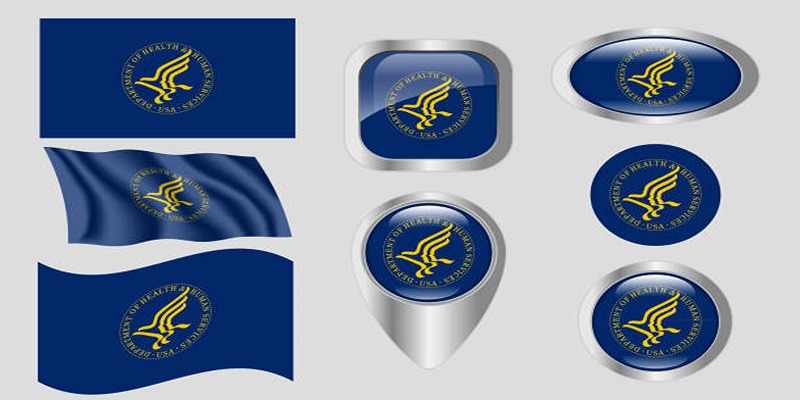The U.S. Department of Health and Human Services (HHS): A Comprehensive Guide
May 17, 2024 By Susan Kelly
The U.S. Department of Health and Human Services (HHS) serves as a cornerstone of the federal government, with a mission to enhance the health, safety, and well-being of American citizens. Founded in 1953, HHS administers a broad spectrum of health and social services, including overseeing Medicare and Medicaid, managing public health emergencies, and fostering advancements in public health standards. Its extensive framework includes key agencies such as the Centers for Disease Control and Prevention (CDC) and the Food and Drug Administration (FDA), positioning HHS at the forefront of national health policy and protection efforts. Committed to improving Americans' health and welfare, HHS embodies the principles of innovation, excellence, and integrity across its diverse range of functions.
The Evolution of HHS
The origins of the Department of Health and Human Services (HHS) trace back to its forerunner, the Department of Health, Education, and Welfare (HEW), established in 1953 under President Dwight D. Eisenhower. In a pivotal restructuring in 1979, HEW was split into the Department of Education and the Department of Health and Human Services. This reorganization aimed to sharpen the government's focus on critical health and social services, promoting a more concentrated and effective approach to fulfilling these essential needs.
Over the years, HHS has seen several transformations, including the integration of new agencies and offices such as the Administration for Children and Families (ACF) and the Office of Refugee Resettlement (ORR). These developments have enabled HHS to progressively respond and adapt to the evolving requirements of the American populace.
HHS's Role in Health and Human Services
As the nation's premier health agency, HHS is responsible for a broad range of activities that promote public health and well-being. These include,
Public health and safety:
- The development of public health policies to prevent and control the spread of infectious diseases
- Promotion of healthy behaviors through education and outreach programs
- Management of public health emergencies, such as natural disasters and pandemics
Healthcare services:
- Administration of Medicare and Medicaid programs, which provide healthcare coverage for millions of Americans
- Implementation of the Affordable Care Act (ACA), which aims to increase access to affordable healthcare for all Americans
- Oversight of the FDA, which regulates food, drugs, medical devices, and other products that impact public health
Social services:
- Operation of programs that provide support and assistance to vulnerable populations, such as low-income families, children in foster care, and refugees
- Development of policies and initiatives to combat domestic violence and human trafficking
- Provision of financial assistance to individuals and families in need through programs like Temporary Assistance for Needy Families (TANF)
Significant Programs and Initiatives

HHS's vast array of programs and initiatives aims to improve the overall health and well-being of Americans. Some key programs include,
The Affordable Care Act (ACA):
The ACA, also known as "Obamacare," was signed into law in 2010 to expand access to quality and affordable health care. It has provided coverage to over 20 million previously uninsured Americans through a variety of provisions, such as the expansion of Medicaid and the creation of state-based insurance exchanges.
National Institutes of Health (NIH):
As the nation's leading medical research agency, NIH conducts and funds groundbreaking research to better understand diseases and develop new treatments. It also supports training programs for future scientists and health professionals.
Head Start:
Head Start is a federal program that provides comprehensive early childhood education, health, nutrition, and parent involvement services to low-income children and families. This program aims to promote school readiness and support the healthy development of young children.
Substance Abuse and Mental Health Services Administration (SAMHSA):
SAMHSA works to reduce the impact of substance abuse and mental illness on individuals, families, and communities by providing prevention, treatment, and recovery services.
Impact and Achievements
HHS's efforts have had a significant impact on public health and social services in the United States. Some noteworthy achievements include,
- The successful implementation of the ACA, which has reduced the number of uninsured Americans by millions and increased access to preventive care and essential health services.
- Significant advancements in medical research through NIH-funded studies that have led to breakthrough treatments for diseases such as cancer and HIV/AIDS.
- The reduction of poverty and improvement of overall health outcomes for low-income families through programs like Medicaid, TANF, and Head Start.
- Improved public health through initiatives targeting issues such as tobacco use, obesity, and infectious diseases.
How to Engage with HHS?
HHS offers various opportunities to engage with the department and provide feedback on its programs and policies. These include public comment periods, advisory committees, and partnerships with state and local governments, among others. Additionally, HHS has an active social media presence where it shares information about its work and encourages public participation.
Challenges and Controversies

Despite its many successes, HHS has also faced challenges and controversies throughout its history. Some of the most notable include,
- The ongoing opioid epidemic, which has claimed thousands of lives and prompted calls for stronger regulation of prescription painkillers.
- The rising cost of healthcare in the United States, which puts a strain on government programs like Medicare and Medicaid and makes it difficult for many Americans to access necessary medical care.
- Controversies surrounding reproductive health policies, such as the Title X family planning program and funding for Planned Parenthood.
Looking Towards the Future
HHS will continue to play a crucial role in promoting public health and providing social services for Americans. As the country faces new challenges, such as emerging health threats and increasing healthcare costs, HHS will need to adapt and innovate to fulfill its mission effectively. With continued collaboration and engagement from the public, HHS can continue to make a positive impact on the well-being of all Americans. So, it is important for individuals to stay informed about the department's work and actively participate in shaping its policies and programs. By working together, we can build a healthier and more equitable society for all.
Final Thoughts
The Department of Health and Human Services is a vital agency responsible for promoting the health and well-being of all Americans. From healthcare coverage to social services, HHS plays a significant role in improving the lives of millions of individuals and families. While it has faced challenges and controversies, HHS continues to make strides towards achieving its goals through innovative programs and initiatives. It is crucial for individuals to engage with HHS and stay informed about its work to help shape a healthier future for all. So, let's continue to support and advocate for the important work of HHS in creating a better and healthier world for everyone.
-
 Mortgages Mar 22, 2024
Mortgages Mar 22, 2024How to Choose the Perfect 20-Year Term Life Insurance Policy?
Find the best 20-year term life insurance policy with a comprehensive comparison. Understand the options to make an informed decision.
-
 Savings Nov 18, 2024
Savings Nov 18, 20243 Ways to Pay Off Student Loans Fast
The average borrower generally takes around 20 years to pay their loan, and it's straightforward to maneuver through the processes and lower your financial burdens with some strategies.
-
 Know-how Feb 11, 2024
Know-how Feb 11, 2024Community Property vs. Joint Tenancy: Understanding Property Ownership Options
It will cover the advantages and disadvantages of each option, as well as factors to consider when making a decision between the two.
-
 Taxes Mar 22, 2024
Taxes Mar 22, 2024Here’s What You Need to Know About Property Tax Deduction
Learn about property tax deductions and how they offer tax savings. Don’t miss out on homeownership benefits.
